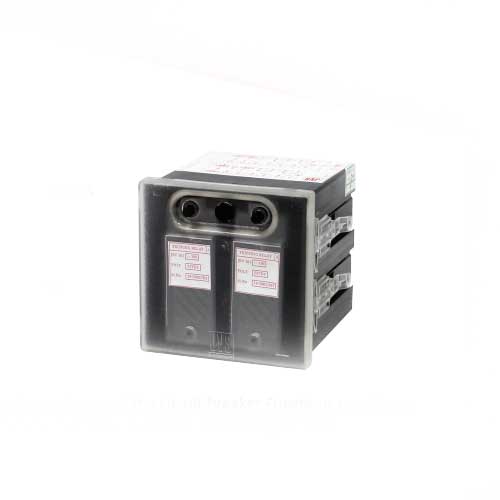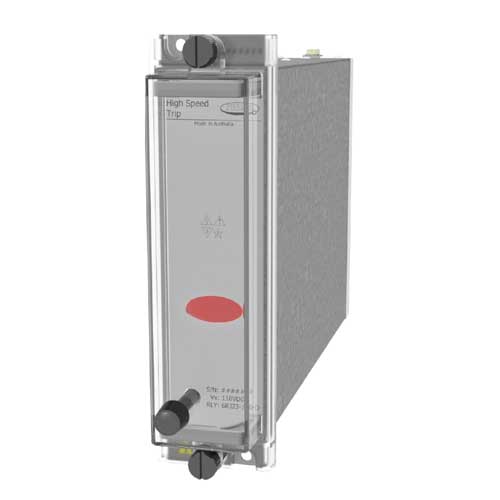Schedule a Call Back
Karnataka - Marching in Big Boots
 Technical Articles
Technical Articles- Aug 11,10
If the kind of MoUs signed at the recently concluded Global Investors Meet in Karnataka can be an indication of sorts, the State is all set to move ahead at a brisk rate, reports Huned Contractor
 On June 4 and 5, Karnataka's business and industry leaders were at their best. The occasion was the Global Investors Meet and this was their big chance to showcase not only their own achievements but also that of the State. And impress they certainly did, as can be deduced from the MoUs signed on the first day itself. Here are some examples: Vishwaraj Infrastructure will establish a 1,000 MW gas-based power plant at Hukeri in Belgaum with an investment of Rs 4,100 crore, IFCI Infrastructure Development Ltd will set up a financial city with an investment of Rs 997 crore, Dynamatic Technologies Ltd will pump in Rs 465.80 crore to manufacture aerospace components at the KIADB Aerospace Industrial Area in Devenahalli, Lafarge India will invest Rs 1,500 crore to set up a 3 MTPA cement plant and a 43 MW coal-based thermal power plant in Gulbarga, and Nandan Bio Matrix Ltd will establish a bio investment eco industrial zone at Bidar at a cost of Rs 96 crore.
On June 4 and 5, Karnataka's business and industry leaders were at their best. The occasion was the Global Investors Meet and this was their big chance to showcase not only their own achievements but also that of the State. And impress they certainly did, as can be deduced from the MoUs signed on the first day itself. Here are some examples: Vishwaraj Infrastructure will establish a 1,000 MW gas-based power plant at Hukeri in Belgaum with an investment of Rs 4,100 crore, IFCI Infrastructure Development Ltd will set up a financial city with an investment of Rs 997 crore, Dynamatic Technologies Ltd will pump in Rs 465.80 crore to manufacture aerospace components at the KIADB Aerospace Industrial Area in Devenahalli, Lafarge India will invest Rs 1,500 crore to set up a 3 MTPA cement plant and a 43 MW coal-based thermal power plant in Gulbarga, and Nandan Bio Matrix Ltd will establish a bio investment eco industrial zone at Bidar at a cost of Rs 96 crore.
In the words of Karnataka's Chief Minister B S Yeddyurappa, "The State's entrepreneurial spirit in innovations and R&D has given us recognition world over. Our rich natural resources, proactive government policies, talented workforce and a strong economy have propelled the State to become a preferred investment destination. Vision 2020 for Karnataka seeks to propel a holistic growth by promoting equitable development of sectors and districts by providing employment to all sections of people and regions of the State. It will also focus on ensuring excellent infrastructure, quality education, decent living conditions and life security for all our citizens. Karnataka is a State of action. We have witnessed rapid and unparalleled growth across our knowledge-based sectors. Each of our 30 districts is unique in its own right, offering investment potential like no other State in the country. Over 700 MNCs are already reaping the advantages of making Karnataka their home."
Government Support
 Primarily, what has led Karnataka to achieve impressive industrial progress is the role played by the State government. It has targeted a balanced regional growth by creating development corridors, linking major industrial areas by national highways and rail links, and matching natural resource capabilities. Every part of the State is set to be supported with infrastructure projects to boost growth and employment. What has also been a major contributing factor is the development of specific industrial zones. For example, its steel zone comprises areas such as Bellary, Koppal, Bagalkot, Haveri, Gadag and Raichur, its cement zone is spread over Gulbarga, Bagalkot, Chitradurga and Belgaum, its IT/BT zone includes Mysore, Mangalore, Hubli-Dharwad, Belgaum, Shimoga, Gulbarga, Kolar and Mandya and its automobile zone is located at Ramanagara, Shimoga, Dharwad and Kolar.
Primarily, what has led Karnataka to achieve impressive industrial progress is the role played by the State government. It has targeted a balanced regional growth by creating development corridors, linking major industrial areas by national highways and rail links, and matching natural resource capabilities. Every part of the State is set to be supported with infrastructure projects to boost growth and employment. What has also been a major contributing factor is the development of specific industrial zones. For example, its steel zone comprises areas such as Bellary, Koppal, Bagalkot, Haveri, Gadag and Raichur, its cement zone is spread over Gulbarga, Bagalkot, Chitradurga and Belgaum, its IT/BT zone includes Mysore, Mangalore, Hubli-Dharwad, Belgaum, Shimoga, Gulbarga, Kolar and Mandya and its automobile zone is located at Ramanagara, Shimoga, Dharwad and Kolar.
Some of the investor-friendly measures taken by the government include the Karnataka Udyog Mitra, set up more than a decade ago. It serves as a single contact point for all investors - from receiving a proposal to ensuring its implementation. Further, more than 3,000 acres in each district have been acquired by the Karnataka Industries Areas Development Board (KIADB) for industrial development, ironing out difficulties in creating the basic infrastructure before operationalising production facilities. The Suvarna Karnataka Development Corridor (SKDC) programme connects most of the Tier II cities through a network of highways, with cluster development in designated zones. Under this programme, 25 kms on both sides of the corridor will be developed for industrial clusters, townships, satellite towns and sector-specific industrial zones.
Further, the State government's packages of incentives and concessions for new industrial investments include:
- 75 to 100 per cent stamp duty exemption on land sale deeds and loan documents registration.
- Land-conversion fine reimbursement of 75 to 100 per cent for converting agricultural land to industrial use.
- 100 per cent exemption on entry tax on plant and machinery for three years during the implementation of the project.
- 100 per cent five-year exemption on entry tax on raw materials, inputs, components etc during the operation period.
- Interest-free loan to an extent of 50 per cent of the value of fixed assets at 25 per cent of the assessed gross VAT for a period of seven years extendable to 12 years.
Textiles
 The textile industry has always been an important one in Karnataka by way of its contribution to industrial production, employment generation and export earnings. According to information presented at the Global Investors Meet, "The textile sector contributes 0.50 per cent of the GDP of the State, approximately Rs 1,00,000 crore in value. Karnataka accounts for 20 per cent of the national garment production, valued at around Rs 7,500 crore and 8 per cent of the national exports. Bangalore is also known as the 'Garment Capital' of India. Garment exports from Karnataka occupy the second position (nationally) in terms of value of exports from the State, next only to electronics and computer software."
The textile industry has always been an important one in Karnataka by way of its contribution to industrial production, employment generation and export earnings. According to information presented at the Global Investors Meet, "The textile sector contributes 0.50 per cent of the GDP of the State, approximately Rs 1,00,000 crore in value. Karnataka accounts for 20 per cent of the national garment production, valued at around Rs 7,500 crore and 8 per cent of the national exports. Bangalore is also known as the 'Garment Capital' of India. Garment exports from Karnataka occupy the second position (nationally) in terms of value of exports from the State, next only to electronics and computer software."
Karnataka is among the largest wool producing States in India, contributing 12 per cent to the national figures and has infrastructure support in terms of apparel parks across the State. Apart from the current park in Doddaballapur, the proposed locations for apparel parks include those in Bellary, Davanagere, Ramanagaram, Belgaum, Gulbarga, Rabakavi - Banahatti, Bagalkot and Mysore districts. There are a total 3.86 lakh manufacturing units engaged in the textile and garment sector at the organised and unorganised level. In some of the recent developments that have spurred the State's textile sector to grow further, Jade Holdings has been given in-principle approval to set up a textile SEZ in the Bidar district of Karnataka, a proposal for a viscose staple fibre plant to be set up by Grasim Industries in Haveri was approved in June 2009 and 250 acres of land has been granted for setting up of a textile park in Shimoga by Shahi Exports, a Bangalore-based garment manufacturing firm.
Automobiles
 Karnataka is the fourth-largest State in automotive production. With Bangalore as part of the auto concentration of the southern region, the State's other cities with significant auto activity include Dharwad, Mysore and Belgaum. Karnataka has attracted investments from many domestic and global auto majors and auto component companies, including Bosch, Toyota Kirloskar Motor Ltd, Volvo, Tata Motors, Reva Electric Cars, TVS Motors, L&T Komatsu, BEML, Vikrant Tyres, Escorts and Telcon Hitachi. Toyota Kirloskar is expanding its manufacturing facility at Bidadi with an investment of Rs 3,200 crore. JK Tyres plans to invest Rs 130 crore to set up manufacturing of off-the-road tyres in Mysore. Also, the tyre major has recently announced plans to undertake substantial expansion of its operations in Karnataka with the investment of Rs 800 crore.
Karnataka is the fourth-largest State in automotive production. With Bangalore as part of the auto concentration of the southern region, the State's other cities with significant auto activity include Dharwad, Mysore and Belgaum. Karnataka has attracted investments from many domestic and global auto majors and auto component companies, including Bosch, Toyota Kirloskar Motor Ltd, Volvo, Tata Motors, Reva Electric Cars, TVS Motors, L&T Komatsu, BEML, Vikrant Tyres, Escorts and Telcon Hitachi. Toyota Kirloskar is expanding its manufacturing facility at Bidadi with an investment of Rs 3,200 crore. JK Tyres plans to invest Rs 130 crore to set up manufacturing of off-the-road tyres in Mysore. Also, the tyre major has recently announced plans to undertake substantial expansion of its operations in Karnataka with the investment of Rs 800 crore.
Hero Honda Motors has short-listed Karnataka as one of the States for its fourth manufacturing plant. It has proposed an investment of Rs 2,000 crore for the plant and the State government has offered them two sites -- 500 acres in Hubli and 1,000 acres near Dharwad, which already houses Tata Marcopolo Motors that manufactures buses. Tata Motors has set up a plant for luxury bus manufacturing at Belur while Volvo India has bus projects in Hoskote worth Rs 400 crore of investment. Meanwhile, Delphi Automotive Systems has expanded its technical centre in Bangalore at a cost of Rs 120 crore while the auto ancillary projects recently completed include those by Sansera Engineering, Araco Polyflex, Omax Autos Ltd etc.
Aerospace
 Karnataka has for long been associated with aircrafts due to the presence of Hindustan Aeronautics Limited (HAL) and it therefore comes as no surprise to be told that it produces more than a quarter of India's aircraft and spacecraft. An additional booster has been in the form of the National Aerospace Laboratories (NAL), Aeronautical Development Agency (ADA) and the Gas Turbine Research Establishment (GTRE). HAL has 19 production units and nine research and development centres in seven locations across India, of which eight production units and four R&D centres are located in Bangalore. Ranked 40th in Flight International's list of the World's Top 100 aerospace companies in 2008, HAL has a total turnover of Rs 10,400 crore. It has manufactured 12 types of aircraft with in-house R&D and 14 types under license. While it has built more than 3,550 aircraft and 3,600 engines, over 8,150 aircraft and 27,300 engines have been overhauled at its facilities.
Karnataka has for long been associated with aircrafts due to the presence of Hindustan Aeronautics Limited (HAL) and it therefore comes as no surprise to be told that it produces more than a quarter of India's aircraft and spacecraft. An additional booster has been in the form of the National Aerospace Laboratories (NAL), Aeronautical Development Agency (ADA) and the Gas Turbine Research Establishment (GTRE). HAL has 19 production units and nine research and development centres in seven locations across India, of which eight production units and four R&D centres are located in Bangalore. Ranked 40th in Flight International's list of the World's Top 100 aerospace companies in 2008, HAL has a total turnover of Rs 10,400 crore. It has manufactured 12 types of aircraft with in-house R&D and 14 types under license. While it has built more than 3,550 aircraft and 3,600 engines, over 8,150 aircraft and 27,300 engines have been overhauled at its facilities.
Bharat Electronics Ltd is another public sector firm engaged in this industry, which has entered into MOUs with international companies like Lockheed Martin, Boeing, EADs etc. NAL was set up in 1959 under CSIR in Bangalore. The aeronautical lab consolidated its position as a major player with the approval of India's Light Combat Aircraft project in 1983. Private firms registering a major presence in the industry include Quest Global that has a ten-year strategic relationship with Magellan Aerospace. In 2007, the firm set up the country's first special processing facility for aerospace manufacturing, delivered the first set of A-380 components to SABCA and achieved Airbus and AS 9100 certification. The very next year, it became the first Indian private sector player qualified to offer end-to-end solutions to European Aeronautic Defence and Space Company NV (EADS), and set up a dedicated sheet metal fabrication facility for aerospace.
Information Technology
Known as the leading IT hub of the country, Bangalore has been the most preferred destination for both Indian and foreign IT companies, mostly due to the availability of skilled technical manpower in the State. With over 5 lakh people employed directly in the IT sector, the base of IT companies in the State doubled from 1,038 to 2,084 over the period 2001-02 till 2008-09, while the number of BPO and ITeS companies in Karnataka rose from 185 in 2005-06 to 270 in 2008-09. Karnataka's software exports increased to Rs 70,375 crore in 2008-09 from Rs 59,500 crore in 2007-08 while BPO (business process outsourcing) exports more than doubled to Rs 15,014 crore from Rs 7,600 crore in the same period. The tertiary sector, driven by IT services, grew by 8.5 per cent, with communications posting a growth of 26.8 per cent.
Karnataka is India's largest software exporter, contributing up to 34 per cent of national exports. It is the largest IT hub with 2,100 IT companies constituting over 20 per cent of the IT companies in the country and has 40 IT SEZs or 20 per cent of the total 156 approved in the country. Bangalore is the fourth largest technology cluster in the world after Silicon Valley, Boston and London, the largest hub of semiconductor design companies outside the Bay Area of California. The numbers of units in software technology parks in the State have risen from 1,520 in 2004-05 to 2,085 in 2008-09. "The IT Department is planning an IT investment region over 10,000 acres of land near BIAL with an investment of USD 20 billion, already touted as one the largest infrastructure projects in the history of Karnataka. This endeavour is expected to create four million jobs by the year 2030. Our other proactive government initiatives include the first ever IT and Semiconductor Policy adopted by the State," informs Katta Subramanya Naidu, Minister for Excise, Information and BT, Science & Technology.
Interestingly, Karnataka continued to attract fresh investment even in the year of global recession, though at a lower rate - 84 new software companies set up operations during 2008-09, compared to 116 during the previous year. The number of hardware companies has increased from 27 in 2001-02 to 76 in 2008-09, while exports from hardware have risen from USD 78 million to USD 823 million over the same period, reflecting the boom in the hardware business in the State. The companies that have their offices and centres in the State include: Texas Instruments, Intel, AMD, Siemens, Synopsis, Philips, Analog Devices, National Semiconductors, Oracle, SAP, Novell, Sun Microsystems, Hewlett Packard, Network Associates, Lucent Technologies, Nortel, Siemens, Motorola, Cisco Systems, Ericsson, Sony, Sasken, Nokia and others.
Food Processing
Karnataka has demonstrated substantial potential in contributing to the nation's food processing industry. While 64.60 per cent of its total geographical area is under agriculture cultivation, it ranks fifth in India in area and production of vegetable crops. It is the country's largest producer in floriculture, spices, aromatic and medicinal crops and tropical fruits. In fact, it supplies 12 per cent of the total fruits and 8 per cent of the total vegetables grown in the country. About 70 per cent of India's coffee production comes from this State. In recent years, Karnataka has also emerged a leader in spices, especially cardamom and pepper. The State is also the second highest producer of pepper. Further, it ranks third in the country's total sugar production, and fourth in the country in the cultivation of sugarcane.
Clear Vision
The fact that Karnataka is on the right road to further growth can be gleaned from what Chief Minister B S Yeddyurappa had to say at the Global Investors Meet: "We have been able to remove red tape from governance. Instead, we lay the red carpet for investors. We would like to make the impossible, possible. That is how history is created. That is how new chapters are written. I have a big dream for Karnataka - a State that is peaceful, progressive and prosperous. Karnataka is where every entrepreneur will have many ventures to start small, but grow big. It is a State that is full of opportunities for every person to dream and realise that dream. After all, democracy, as political philosophers say, is a matter of choices - the more, the better."
Related Products

High Speed Tripping Relay Two Element Relay - Jrv 181x2
JVS Electronics Pvt Ltd offers a wide range of high speed Read more

Plenty of Motion Possibilities in a Compact Housing
B&R Industrial Automation offers a wide range of plen Read more

High Speeed Tripping Relay Three Element Relay
JVS Electronics Pvt Ltd offers a wide range of high speed tripping relay three element relay - JRV 181x3.












